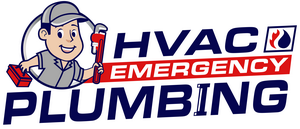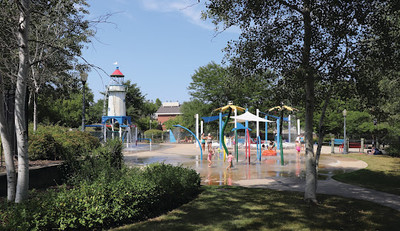Mundelein, IL, Plumbers Near Me, 24/7 Emergency Plumbing, HVAC
WHY CHOOSE OUR PLUMBING COMPANY? ⚙
- Our team consists of highly skilled, licensed, and insured emergency plumbers.
- We understand the urgency of plumbing emergencies and offer 24/7 availability.
- With years of experience, we provide efficient and professional service.
SERVICES WE OFFER:
- Burst Pipe Repair: ⛲
We swiftly respond to burst pipes to prevent water damage and restore your plumbing system.
- Leak Detection and Repair:
We employ advanced technology to locate and promptly repair hidden leaks.
- Water Heater Repair and Replacement: ♨
If your water heater malfunctions, we can repair it or provide efficient replacement options.
- Drain Cleaning:
Our specialists use state-of-the-art equipment to clear blocked drains and restore proper flow.
- Gas Leak Detection and Repair:
We prioritize safety by promptly detecting and repairing gas leaks.
- Excavation Services:
We also offer fast and affordable emergency excavation services.
- HEATING ☀
- AIR CONDITIONING ❄
- Medical & Laboratory Plumbing Installation
We provide all of our plumbing and other services in Mundelein, IL, NorthShore, Northwest suburbs of Chicago.
We are happy to answer any questions you may have.
You might be interested in the forum as well.
Also, read a lot of positive reviews about us !
At Emergency Plumbing, we are committed to delivering top-quality plumbing services that exceed your expectations.
Our Latest Work: A Testimonial to Our Expertise
We believe that actions speak louder than words, and our latest work stands as a testament to our expertise and commitment to excellence. From residential plumbing projects to commercial installations, our skilled team of plumbers has successfully completed a wide range of projects with precision and professionalism.
Residential Plumbing Projects in Mundelein
We understand the importance of a well-functioning plumbing system in your home, and our latest residential projects serve as shining examples of our dedication to providing reliable and efficient plumbing solutions. Whether it's repairing a leaky faucet, installing a new water heater, or remodeling your bathroom, our expert plumbers bring their years of experience to ensure the job is done right the first time.
Commercial Installations and Renovations in Mundelein
Our expertise extends to commercial plumbing projects as well. From new construction installations to renovating existing plumbing systems, our team has the knowledge and skills to handle projects of any scale. We have worked with various businesses, including offices, restaurants, hotels, and retail establishments, delivering exceptional results that meet the unique requirements of each client.
Emergency Plumbing Services in Mundelein
— WATER HEATER INSTALATION AND REPAIR
— SUMP PUMP REPAIR & INSTALLATION
— RESIDENTIAL GARBAGE DISPOSALS
— VIDEO CAMERA SEWER & DRAIN INSPECTIONS
— LAUNDRY DRAIN CLEANING & REPAIR
— Medical & Laboratory Plumbing Installation
Plumbing emergencies can strike when you least expect them, and our latest emergency plumbing projects demonstrate our ability to respond promptly and effectively. Whether it's a burst pipe, a clogged drain, or a malfunctioning water heater, our emergency response team is available 24/7 to address your urgent plumbing needs. Our quick and efficient solutions will restore your plumbing system to full functionality in no time.
Unparalleled Customer Service in Mundelein
At Emergency Plumbing, we prioritize customer satisfaction above all else. From the initial consultation to completion, we strive to provide unparalleled customer service throughout the entire process. Our friendly and knowledgeable staff is always ready to answer your questions, address your concerns, and keep you informed at every step. We believe in building strong relationships with our clients, earning their trust, and exceeding their expectations.
Contact Us Today!
If you're in need of reliable and professional plumbing services, look no further than Emergency Plumbing. Our latest work is a testament to our expertise, dedication, and commitment to delivering exceptional results. Don't hesitate to reach out to us to discuss your plumbing needs or schedule a consultation. We are ready to assist you and provide the highest level of plumbing service that you deserve.
Experience the difference with Emergency Plumbing and let us be your trusted partner for all your plumbing projects, big or small!.
We offer the following products and their installation below:
- Water Heater
- Tankless Water Heater
- Boiler
- Sump Pump & Sewage | Ejector Pump
- Booster Pump
- Fountain
- Furnace
- Air Conditioner
- Humidifier
- Dehumidifier
- UV Light
- Fresh Air Ventilation Systems
- Smart Thermostat
- Heat Pump
- Zoning control systems | Zone control dampers
- Smart water shut off valve
- Flood Control Systems
- Radon Control System
Mundelein is a village in Lake County, Illinois, United States and a northern suburb of Chicago. Per the 2020 census, the population was 31,560. It is approximately thirty-five miles northwest of Chicago.
The community now known as Mundelein has been inhabited since at least 1650, when the Potawatomi people were known to have been trading with French fur traders. The first European inhabitants reached the area in the early 19th century. Peter Shaddle (for whom a street is named) was the first known settler, building a log cabin in the area now owned by St. Mary of the Lake Seminary in 1835.
The next settlers were tradesmen escaping from England's industrial depression, who became farmers in the Mundelein area. In honor of their former professions, they named the city "Mechanics Grove", and built schools, churches, and businesses. The community grew and (while still unincorporated) changed its name to "Holcomb", in honor of John Holcomb, a person who was active in the area's development. As Holcomb, the community added a railway station and a post office. The Holcomb area incorporated in February 1909 under a new name, "Rockefeller", a reference to businessman, John D. Rockefeller.
The name Rockefeller was short-lived, however. In July 1909, the community became "Area". This name change was requested by a local educational entrepreneur named Arthur Sheldon, who bought 600 acres (2.4 km2) near town and built a school on it. The school taught sales techniques, including the philosophy of "AREA", which stood for "Ability, Reliability, Endurance, and Action." At one time, it boasted 10,000 students, many of them women (which was unusual for 1909).
In 1915, Archbishop George Mundelein (later Cardinal) of Chicago purchased the property from Sheldon after the Area campus closed to re-establish the Archdiocese's University of Saint Mary of the Lake, also known as the Mundelein Seminary, which continues to exist today.
On December 10, 1924, the Village Board held a special meeting with representatives from the Soo Line Railroad, who requested that the board change the village's name to Mundelein (for the cardinal). The board voted to make the change and asked the Illinois Secretary of State to make the name change. They received permission in April 1925, and the Village Board passed an ordinance changing the village's name to Mundelein. Cardinal Mundelein donated the village its first new fire truck, a 1925 Stoughton. The fire truck was officially turned over to the village at a ceremony held at the St. Mary of the Lake Seminary on July 17, 1925. The original Village Hall, built in 1929 with a few additions over the years, was used until June 2014.
In the 1970s the community was largely residential with a little light industrial development



